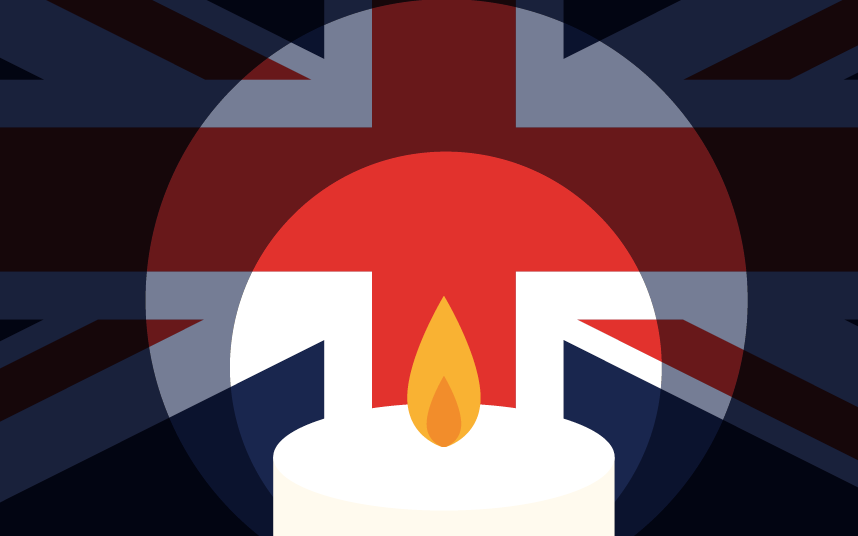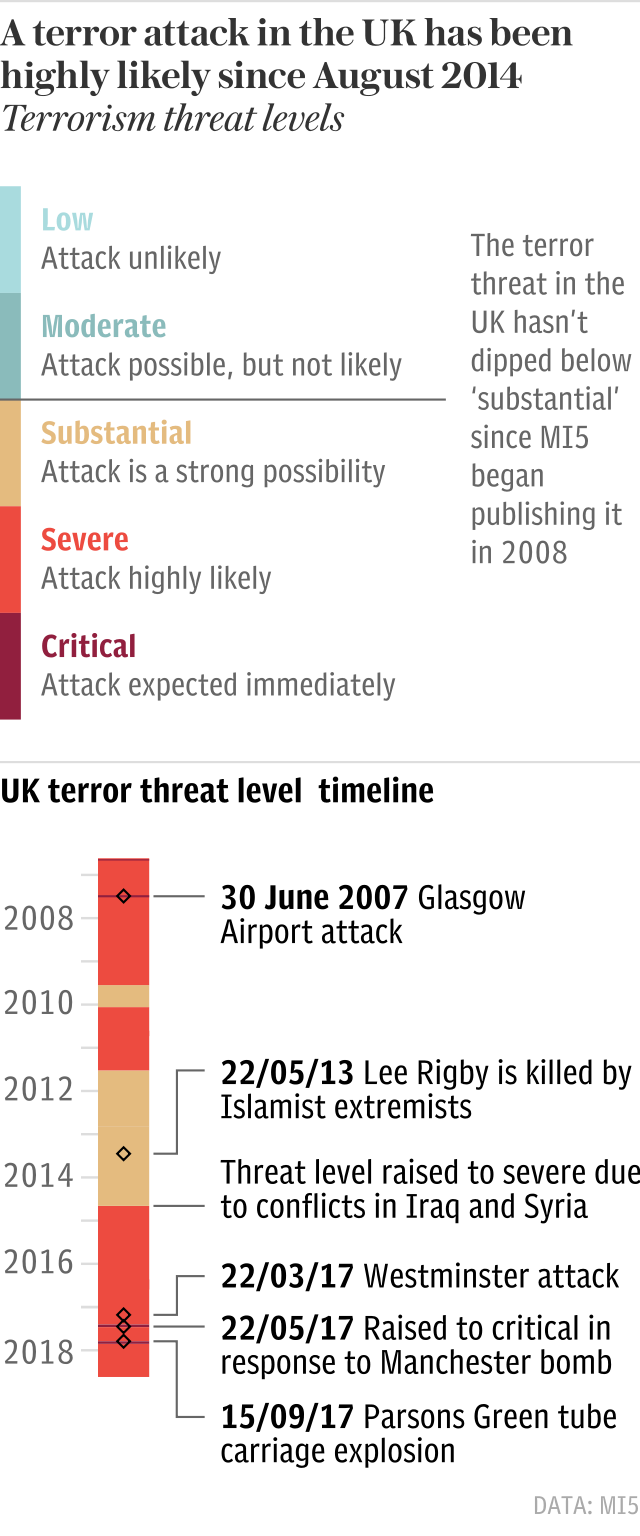How many people are killed by terrorist attacks in the UK?

MI5 Director General Andrew Parker has made a rare public appearance to talk about the intense threat Britain faces from Islamist terrorism.
The head of the UK's Security Service said jihadists were now conceiving and preparing attacks in a matter of days, referring to both the number of thwarted and successful attacks the UK has faced this year.
The UK has been rocked by four terror attacks in 2017, with the most recent attack taking place at Parsons Green tube station last month.
But despite this string of attacks, relatively few people have been killed by terrorist attacks in the UK in recent years.

This is due in part to the success of security services in thwarting attached. Earlier this year, a senior Whitehall source revealed the security services foiled five attacks in the two months after the Westminster attack.
Defending against accusations that MI5 had been repeatedly warned the Manchester suicide bomber, Salman Abedi, was dangerous, the source outlined the scale of the job facing counter-terrorism officials.
But despite this scale, the number of British people killed in acts of terrorism has remained low compared to other countries - with 49 people dying because of terrorism in the UK between 2010 and 2017.
Terror is killing far fewer people in the UK now than it was in the 1980s
Between 2000 and 2017, 126 people have been killed in the UK in terrorist attacks, according to figures from the Global Terrorism Database. Although not on British soil, a further 30 British people were killed in Tunisia when a gunman attacked a hotel popular among Western tourists.
This compares to 1,094 deaths in the 15-year period before that, between 1985 and 1999, and a further 2,211 between 1970 and 1984.
The worst year for terrorism-related deaths in the UK was 1988, when 372 people died. The majority of these died in the Lockerbie disaster, when 270 were killed as a Pan Am transatlantic flight was destroyed by a bomb.
Since 1970, Northern Ireland has seen the most terrorism-related deaths out of any nation in the UK, with IRA-related terrorism plaguing the nation for decades.
1972 saw the peak of this violence, with 353 people killed in Northern Ireland - out of a total of 368 in the whole of the UK.
How does the UK's terror threat compare with the rest of Europe?
Since 1970, the UK has faced the most deaths as a result of terrorism in Western Europe - totalling 3,395.
Spain is the next worst-hit, with 1,261 deaths since 1970. 2004 was the country's worst year for terrorism, when 192 people died as Madrid bombings.

1988 was the worst year for terror in Western Europe, when 440 people in total were killed in attacks - the majority being killed in the Lockerbie bombing.
In 2015, France saw its worst ever attack in Paris when nine terrorists killed 130 people at multiple locations across the capital.
Since 2000, there have been seven deaths per year in the UK due to terrorism - which, according to research from BuzzFeed, means you're more likely to be killed by dogs (18 deaths per year), hot water (100 deaths per year) or using your phone while driving (2,920 deaths per year).

Despite public concern, the terror threat in Europe is relatively low
Terrorism is becoming an increasing concern for Europe's people, with the UK's own threat level set at "severe" - but the figures show that Europe is one of the safest areas in the world for terrorist-related incidents.
While there have been several large attacks in Western Europe in recent years, the number of people killed by terrorism in this region is relatively low compared to other parts of the world.
The Global Terrorism Index found that 38,422 people were killed in terrorist attacks across the world in 2015.
The majority of these were in the Middle East and North Africa, where 17,752 died in terror attacks. Sub-Saharan Africa was the next worst-hit, followed by South Asia.
Since 1970, the Index has counted 106,539 deaths in this region, out of a worldwide total of 348,759 - compared to 6,400 deaths in Western Europe.


